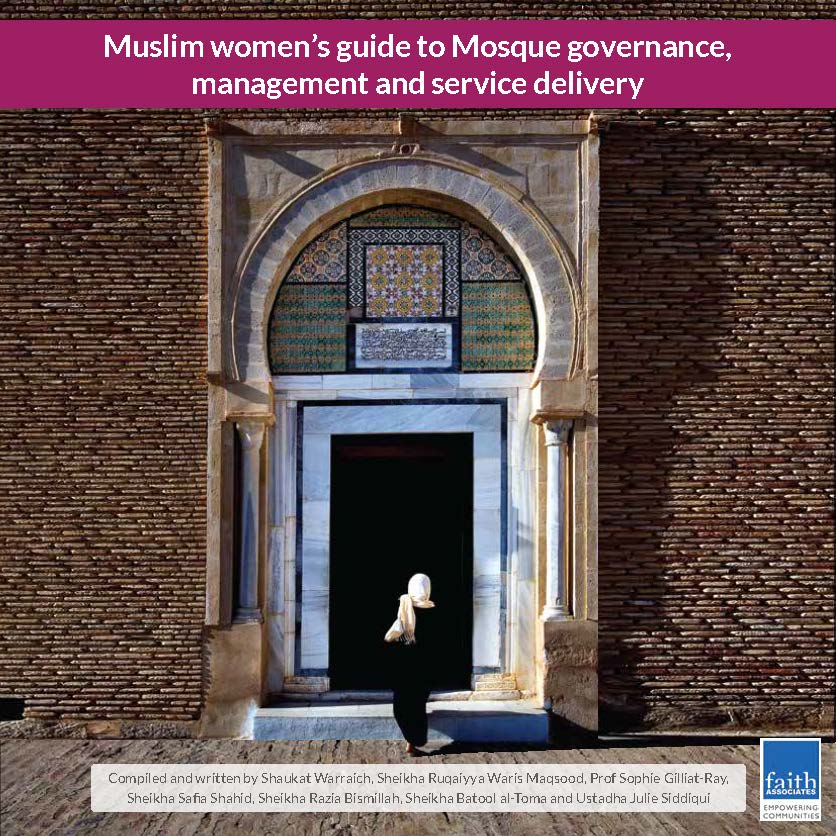To look at diverse aspects of life through the same male lens is to limit perception and understanding. What much of the world is beginning to realise, is the sheer importance of not simply female presence, but female leadership. We live in an era boasting women as Prime Ministers and CEO’s of multinational enterprises, yet certain aspects of the social domain remain exclusively patriarchal. We continue to observe the ability of women to both fulfil these positions of authority and offer aspects of leadership that alter the definition and practises of what it means to be a leader.
Women offer an outlook to management, problem solving, and leadership that men fail to provide. In no way does this perception downplay or de-legitimize male leadership, rather, this article intends on advocating a space for female Muslim leadership on the premise that women offer diverse strengths and skills. The high demand of female-led religious guidance should be met with the supply of knowledgeable female Muslim leaders.
A space for both men and women to acquire the skills and expertise required to practise leadership in Islamic institutions must be encouraged as representation is one of the initial steps to empowerment. Considering the current socio-political and economic climate in the UK, the necessity of youth and female empowerment is paramount. Many countries have taken the initiative to implement avenues and programs integrating women into authoritative positions in the Islamic context.
This article will draw upon the examples of female leadership within Muslim communities in the United Arab Emirates, Morocco and China. Through casting light on these examples, the success of female leadership must be appreciated, alongside acknowledgement of the need to supply avenues toward knowledgeable female Muslim leadership in the UK.
The first example of female leadership in an Islamic context is the UAE government-led female initiative in Abu Dhabi. The only one of its kind when it was launched in 2007, this fatwa hotline employs women to administer religious rulings on social matters. Although the Sheikha’s obtain no legal or political authority, they do exercise legitimate and authoritative influence in society, shaping the socio-political norms and values of the populace. The Emirati state offers education, training and living support to women with either scholarly history, or motivation to practise as Alimah’s.
The ‘fatwa hotline’ then utilizes the expertise of these highly educated women to cater to the needs of the wider Muslim community through somewhat of an advice and guidance service. This service has become extremely popular in Abu Dhabi, hosting space for queries relating to anything and everything, with users stating their ease after being advised by knowledgeable women on all fatwa matters. By redressing the gender imbalance in the religious sphere through reviving a tradition from the Prophet’s time, in which women would educate and advise both men and women in wider society. It must be noted, however, that the Emirati state lacked sufficiently qualified women to fulfil this role, rendering recruitment from Morocco.
Morocco suffers from great gender imbalance within all legal, political, social and economic domains. The patriarchal traditions of this North African nation are, however, increasingly challenged by strong female entities reclaiming positions of power and influence within the religious sphere, in what some have dubbed a “social revolution”. To grant women positions of power has somewhat of a domino effect on societal norms, encouraging greater rights and representation of women in authoritative bodies. The gender imbalance in Morocco’s religious domain has been challenged by a state-led initiative to educate and empower women, in part due to the Casablanca terror attacks of 2003. The value of female leadership is understood through the scope of influence women have in the social domain, both public and private. Subsequently, 2006 was the year that birthed the ‘morchidat’, a new generation of female leaders. The morchidat provide contextually relevant religious guidance to youth and women in schools, madrassas, hospitals, orphanages, rural villages and prisons. This socio-religious authority granted to scholarly women is just one aspect of wider social reforms in Morocco that intend on expanding the rights of women in Moroccan society.
The final example of female empowerment in the religious domain is one that is piloted in China, both a secular and communist nation, somewhat of a paradox to the aforementioned examples. Religious female empowerment in China is far from a new concept, with female mosques, leaders and scholars dating back centuries. The change in Chinese dynasties led to the persecution of Muslim societies, yet the sacrifices Chinese Muslim women willed were crucial in maintaining Islamic identity. The dual identity of Chinese Muslims embraces both aspects as complementary to one another, arguably merging concepts such as gender equality.
The contemporary revival of Islam in China came about during the 1970’s and 1980’s, pioneered by women through educating both the youth and women, an insight that NGO’s and international entities now perceive as a necessity to eradicate poverty, empower communities and progress in both the economic and political spheres. The contemporary innovation and sheer dedication of Chinese Muslim women to maintain and promote Islam has been met with restrictions from the political and legal authoritative bodies dependant on regional borders. Furthermore, although Chinese Muslim women exercise powerful influence in civil society, this authority does not extend to the political and legal domains.
The examples from these three countries intends on highlighting not simply the innovative, resourceful and determined nature of Muslim women on a global scale, but the scope of influence these women have in civil society. Such influence must be nurtured through acceptance, education and empowerment. What Abu Dhabi, Morocco and China have in common is the acknowledgement of female prerogative in Islam, one that can be harnessed in conjunction with diverse cultures and traditions. What female leadership offers in the religious space should not be dictated by men, but rather recognised, supported, and nurtured by their male counterparts. In today’s society women should be able to offer exceptional insight, knowledgeable advice and guidance to their respective communities, communities that are in dire need of an alternative viewpoint, an understanding confidant and a religious narrative that is advanced by women.




